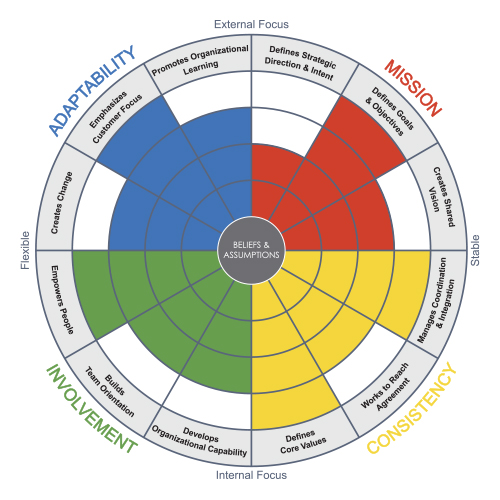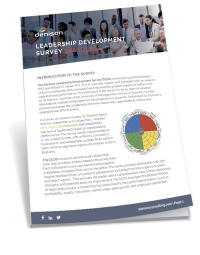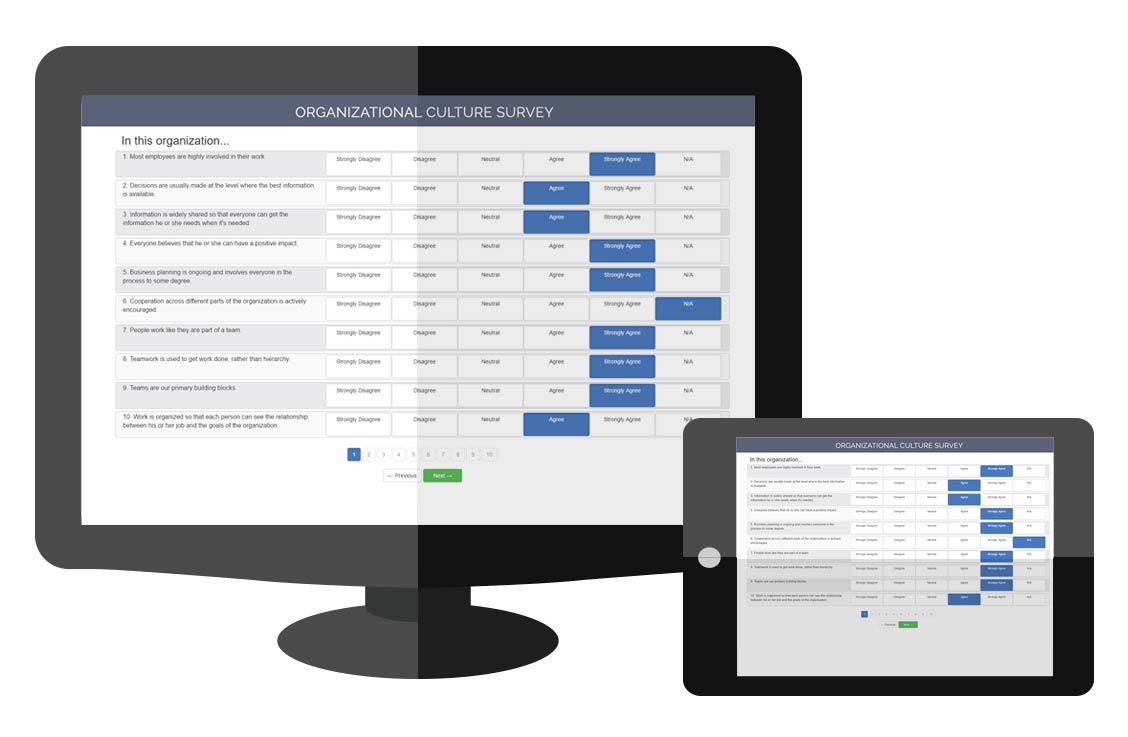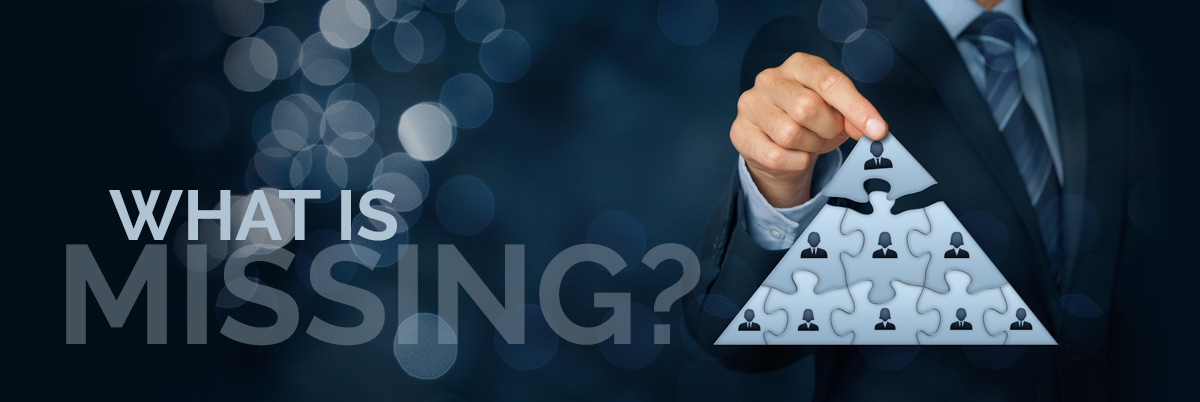What is missing in Leadership Development?
By Bryan Adkins Ed.D., CEO, Denison Consulting
There is an abundance of Executive Programs, certifications, leadership assessments and other mechanisms designed to help leaders improve their personal impact in organizations. Leaders get characterized as transformative, servant, charismatic, autocratic, participative…the list goes on. Are you more task-oriented or people-oriented? A creator or an implementer? As a leader in today’s organizations, any personal insight is of value. However, one topic has risen to the top of the areas of concern for leaders, Board members and employees in general – CULTURE! The question: How does one know how well he or she is doing as a Culture Leader?
As the awareness of the impact of culture has grown, so too has the recognition that leaders are not just influential or even responsible for culture – today they are accountable for the culture.
Dan Denison asserted over two decades ago that organizational culture had an impact on business performance. That research and the significance of those findings were pioneering at the time, with the term “culture” being used quite sparingly in business settings. Today the evidence linking culture and performance is profuse. As the awareness of the impact of culture has grown, so too has the recognition that leaders are not just influential or even responsible for culture – today they are accountable for the culture. When something fails in an organization, we have learned to look closely to determine whether it was a one-off incident or the result of a systemic condition. Leaders in organizations such as Uber, Wells Fargo, VW, the Weinstein Co. and many others have learned that when the system is to blame – they are held accountable.
Culture is about the system. Today it is commonplace to see terms such as “culture,” “engagement” and “climate” used interchangeably. As a firm, we have written at length about those differences. The Climate – what it feels like in the organization, is an outcome of the culture. Engagement – the extent to which an individual is passionate about the work and willing to give discretionary effort – is also a cultural outcome. As a leader, you have responsibility for connecting individuals to the work, for the feeling that exists in the work environment, AND the culture that drives those connections and feelings.

At Denison, we have a singular focus – helping organizations build high-performance cultures. Cultures that deliver financial performance, grow faster than their competitors produce high-quality products and services, attract and retain high-quality talent, innovate, manage risk and provide safe work environments. We do this by focusing on culture AND leadership. Leaders set direction, determine priorities, model and reinforce desired behaviors, and establish the habits and routines that become “the way we do things around here.”
Suddenly having a leadership 360 that looks at leadership
through the lens of culture is a unique and highly-relevant offering.
through the lens of culture is a unique and highly-relevant offering.
Early in our work… to create high-performance cultures… we developed a leadership 360 to support the culture assessment, consulting and coaching services we offer. For a period of time, we were one of many leadership 360’s in the marketplace. Today, there are still many options to choose from; however, the leadership landscape is changing. Leaders continue to have a wide range of responsibilities, but culture development and management has emerged as a leader’s greatest area of accountability. Suddenly having a leadership 360 that looks at leadership through the lens of culture is a unique and highly-relevant offering.
It has been said that culture eats strategy. We would agree. A workforce that lacks clarity, alignment and commitment to the strategy of the organization will struggle to execute. Today it is also safe to say that leadership eats culture. Leaders can talk about the desired culture and may even convince themselves that the culture they talk about is the culture that is experienced by the workforce, customers and other key stakeholders, day-in and day-out. But how can you, the leader and the organization be certain that is the case–and that behaviors and actions that are counter to the espoused culture are indeed one-off events and not a symptom of something more systemic?
Today it is also safe to say that leadership eats culture.
The Denison Culture Model of High Performance is recognized across the globe for the robust research linking specific cultural attributes to business performance. Our culture and leadership diagnostics create the bridge between the Model and the honest conversations that are required to drive real change for organizations and their leaders. By providing leaders and managers with an analysis of twelve leadership skills and practices that have the greatest impact on bottom-line organizational performance, the Denison Model and Leadership 360 allow you to put culture AND leadership front and center in your culture change activities. Linking leadership behaviors and practices to the culture elements that we know drive the collective performance of the organization should be a key component, if not the centerpiece, for leadership development in the
21st century.
Denison Leadership 360 Circumplex

Learn more about the Denison Leadership 360 and
how to develop as a Culture Leader
how to develop as a Culture Leader
About the 360

Leadership Eats Culture

Demo the Survey


